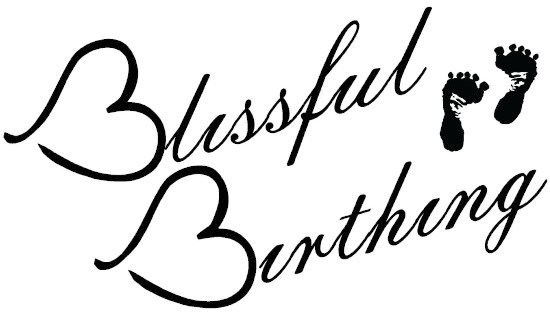Does my baby have reflux?
If you are reading this blog you are either curious or suspicious that your baby may have reflux. Well, the answer is yes. You may be wondering how I can answer that without a medical degree and without seeing your baby and hearing their symptoms. But all babies have reflux to a degree. The sphincter, or ring of muscle, at the junction of the esophagus and stomach does not begin to mature for several months. Due to the immaturity of this lower esophageal sphincter, it opens when it is not supposed to. This permits the backflow of stomach contents into the esophagus. As this sphincter matures, it will only open when appropriate (ie when your baby is swallowing).
Spitting up tends to decrease as baby’s core strength improves. Between six and nine months of age, when baby begins sitting independently, is when this decrease is most commonly observed. Typically reflux symptoms will resolve completely once baby has been walking for three months, or by 18 months of age.
When does spitting up become problematic?
Spitting up can, however, become problematic. What are signs that it has reached that point? Some of the most common are:
- if your baby is not gaining weight well or begins to lose weight. Remember that breastfed babies tend to gain weight more slowly than their formula fed counterparts).
- your baby is regularly choking on their spit up or breathing it back in (aspiration).
- your baby develops reflux esophagitis, which is acid damage to their lower esophagus.
These symptoms are unusual and typically effect around 1% of babies.
What do you recommend if my baby has reflux?
Obviously, my first recommendation is to speak with your baby’s pediatrician. Some things you may want to look into or consider asking them about are:
- more frequent feedings of a lesser quantity.
- more frequent pauses for burping. This will reduce the amount of air in baby’s belly – a propellant for milk when they spit up.
- holding baby upright for 20-40 minutes after feedings. Not all professionals are in agreement on this point. It can take 2 – 2.5 hours for baby’s stomach to empty. Remember, your baby is spitting up because their lower esophageal sphincter is not mature yet. Maintaining an upright position for 20-40 minutes will not allow for any significant emptying of the stomach and is unlikely to accomplish much other than making you feel like you did “something”.
What is not recommended for managing reflux?
If you’ve turned to a Facebook mom group for advice on spit up or reflux you’ve likely seen some of these (unsafe) recommendations. While these groups can be a great way to crowdsource information, please remember to check the validity and safety of recommendations you receive.
- Do not add a non-prescription thickener (ie rice or oatmeal cereal) to your baby’s bottle. This poses a choking hazard to your baby. Given that your little one is already having trouble keeping their stomach contents down, this is especially dangerous.
- The American Academy of Pediatrics only recognizes firm, flat surfaces as safe for sleep. Elevating baby’s bassinet or crib mattress, or sleeping them in a bouncer or car seat are unsafe, even for babies with reflux. Sleep on an inclined surface puts baby at increased risk for positional asphyxiation.
Should I try medication for my baby’s reflux?
This is a very personal decision, and one that should be discussed, at length, with your baby’s pediatrician. If you are considering or want to discuss this path, I strongly recommend booking the appointment as a consultation, rather than a regular office visit. This will allow you more time to discuss your concerns with the doctor.
Some things to remember and consider regarding medication:
- They increase the pH of the stomach acid, making it burn less when baby spits up. These medications will not inhibit or reduce spit up.
- Proton pump inhibitors should only be used if your baby has lower esophagitis, not for managing occasional discomfort from spitting up.
- The dose is typically weight dependent, so it will likely increase every so often. When it is time to stop this medication, a gradual approach will be recommended. Abruptly stopping this type of medication can be painful due to the sudden increase in the acidity of the stomach’s contents.
- These medications are intended for short-term use. Typically they will be prescribed for two to eight weeks. Our bodies were designed to have an acidic pH in the stomach. Why? It is necessary for the physical and chemical breakdown of our food, as well as to serve as a barrier against certain pathogens. Prolonged use of proton pump inhibitor medications can leave your baby more vulnerable to nutritional deficiencies and infections.
What is the difference between reflux and GERD?
As we already went over, all babies can experience reflux due to the immaturity of their lower esophageal sphincter. Complications from reflux can lead to Gastroesophageal Reflux Disease (GERD). Such complications may include:
- refusal to eat.
- arching the back while eating or when spitting up (due to pain).
- blood in the spit up.
- spit up with a greenish tinge.
- distended (swollen) or hard belly.
- wheezing, coughing, or other respiratory symptoms.
Additional Reading/Resources
Weaning Works: Why You Shouldn’t Go Cold Turkey with your PPIs
Babies Spitting Up – Normal in Most Cases
Gastroesophageal Reflux & Gastroesophageal Reflux Disease: Parent FAQs
Other Blogs You May Like
- Does Breast Milk Cause Cavities?
- What is the Best Bottle?
- Why it’s not Cute When Your Baby Stays Awake All Day
This blog is for informational purposes, only. It cannot diagnose, treat, prevent, or cure any medical condition. The opinions contained in this blog are those of Rebecca Tucci, Family Care Coordinator of Blissful Birthing

